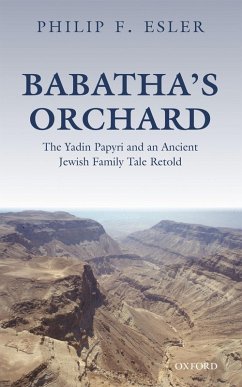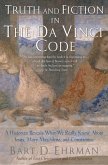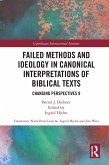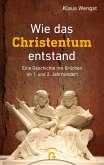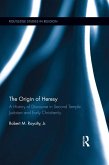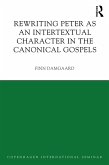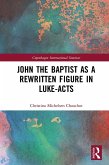In 1961 archaeologists discovered a family archive of legal papyri in a cave near the Dead Sea where their owner, the Jewish woman Babatha, had hidden them in 135 CE at the end of the Bar Kokhba revolt. Babatha's Orchard analyzes the oldest four of these papyri to argue that underlying them is a hitherto undetected and surprising train of events concerning how Babatha's father, Shim'on, purchased a date-palm orchard in Maoza on the southern shore of the Dead Sea in 99 CE that he later gave to Babatha. The central features of the story, untold for two millennia, relate to how a high Nabatean official had purchased the orchard only a month before, but suddenly rescinded the purchase, and how Shim'on then acquired it, in enlarged form, from the vendor. Teasing out the details involves deploying the new methodology of archival ethnography, combined with a fresh scrutiny of the papyri (written in Nabatean Aramaic), to investigate the Nabatean and Jewish individuals mentioned and their relationships within the social, ethnic, economic, and political realities of Nabatea at that time. Aspects of this context which are thrown into sharp relief by Babatha's Orchard include: the prominence of wealthy Nabatean women and their husbands' financial reliance on them; the high returns and steep losses possible in date cultivation; the sophistication of Nabatean law and lawyers; the lingering effect of the Nabateans' nomadic past in lessening the social distance between elite and non-elite; and the good ethnic relations between Nabateans and Jews.
Dieser Download kann aus rechtlichen Gründen nur mit Rechnungsadresse in A, B, BG, CY, CZ, D, DK, EW, E, FIN, F, GR, HR, H, IRL, I, LT, L, LR, M, NL, PL, P, R, S, SLO, SK ausgeliefert werden.

